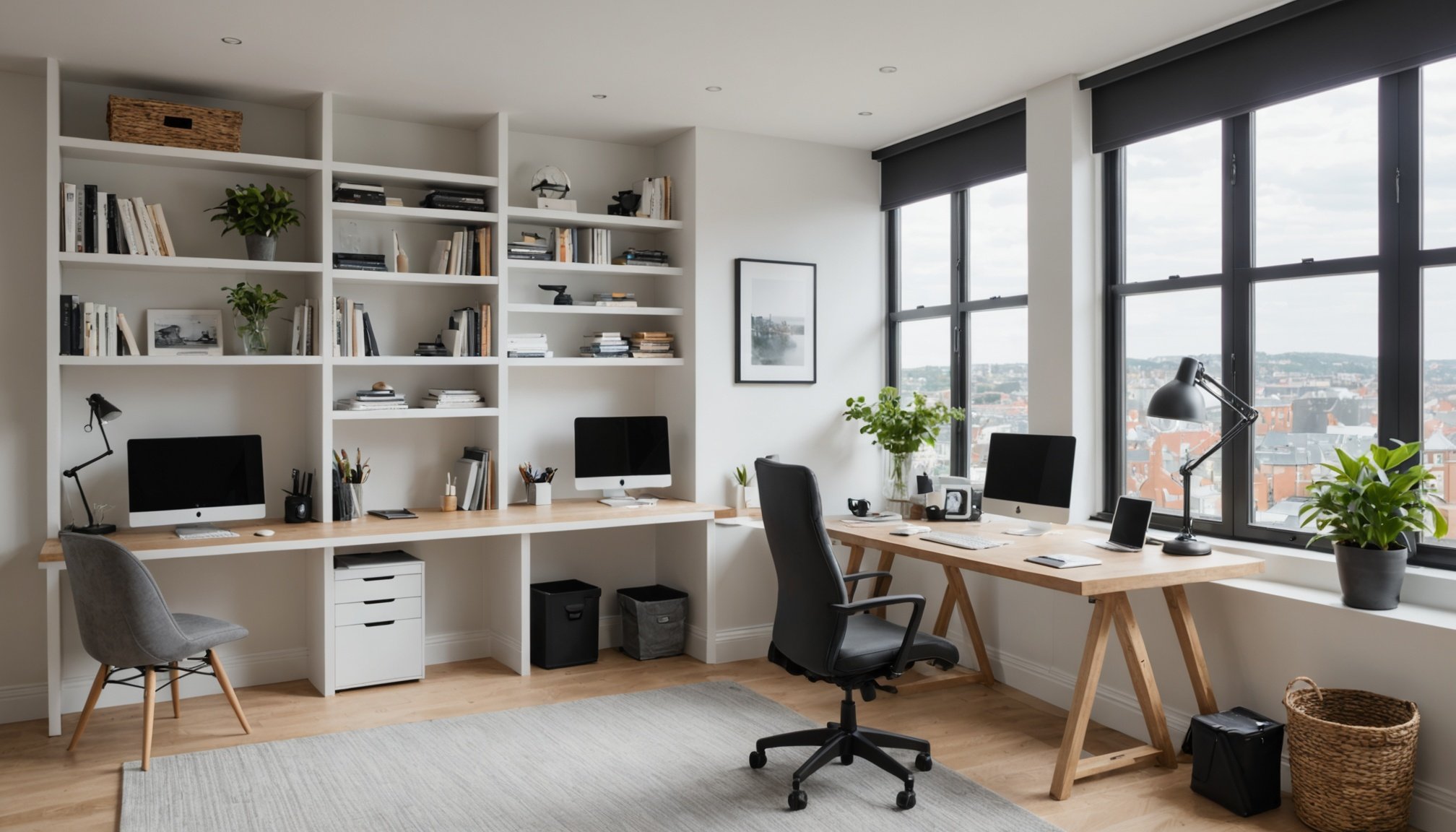Overview of Newcastle’s Zoning Regulations
In the ever-evolving landscape of urban development, Newcastle zoning laws play a pivotal role in shaping how spaces are utilized across the city. The primary purpose of zoning is to ensure a cohesive and sustainable urban environment by dividing the area into distinct zoning districts. Each district has specific rules that regulate land use, building types, density, and other factors.
A crucial aspect for residents, particularly those embracing remote work, is understanding home office regulations within these zoning districts. Different areas might have varying restrictions or allowances when it comes to setting up a home office. For instance, residential zones typically have stricter rules compared to mixed-use or commercial zones, which might allow for more flexibility in establishing a workspace.
This might interest you : Key Guidelines for Transforming a Barn into a Cozy Home in Rural Wales
As remote work becomes more prevalent, it becomes increasingly important for residents to comprehend these zoning regulations. Awareness of Newcastle zoning laws and their implications can aid in ensuring compliance and preventing unwanted fines or adjustments. By familiarizing oneself with these regulations, individuals can seamlessly integrate their professional activities into their residential environments without legal hitches, ultimately contributing to a balanced work-life setting.
Permit Requirements for Home Offices
Setting up a home office requires navigating the relevant permit processes. Understanding the types of permits needed can save time and effort.
Additional reading : Key Guidelines for Transforming a Barn into a Cozy Home in Rural Wales
In Newcastle, there are specific permits for establishing a home office. If you are planning to make structural changes or require a change in property use, you may need a building permit or planning permission. These permits ensure the use of space complies with local guidelines and safety regulations.
Newcastle Permit Process
The permit application process in Newcastle is straightforward but requires attention to detail. Here’s a step-by-step guide:
-
Research Requirements: Visit Newcastle’s city council website to identify necessary permits for your specific situation.
-
Prepare Documentation: Gather documents such as proof of ownership, building plans, and any additional information relevant to your application.
-
Submit Application: Fill out and submit the application form, either online or in person, at a local council office.
-
Await Approval: Processing times vary; generally, you can expect a decision within four to six weeks.
Typical fees for home office permits in Newcastle vary based on the type of permit and extent of work involved. Always verify current rates to avoid unexpected expenses.
Allowable Activities for Home Offices
Navigating the world of home office activities can be complex, as zoning laws govern what constitutes permitted use in residential areas. Understanding these regulations is essential for turning your home space into a business hub without crossing legal boundaries.
Types of Home-Based Businesses
Many home office activities fit neatly into residential zoning rules. Examples often include professional services and consultations like freelance writing, graphic design, tutoring, or virtual administrative assistance. These business types involve minimal client visits, ensuring quiet enjoyment for your neighbourhood.
Professional Services and Consultations
Professional services and consultations offer a wealth of possibilities for your home office. As long as the activities remain predominantly digital or phone-based, they comply with zoning regulations. Choose activities that limit direct client interaction, primarily using virtual communications tools.
Restrictions on Retail Sales
While many business activities are allowed, there are restrictions, especially concerning retail sales. Generally, direct sales involving on-site customer transactions are prohibited. This restriction helps maintain the residential character of neighbourhoods. However, online sales with off-site order fulfilment are typically acceptable.
In exploring home office activities, always check local zoning laws to ensure your business operations align with permitted use, thus safeguarding your home office’s legitimacy.
Common Restrictions and Considerations
When establishing a home office, homeowners often encounter various home office restrictions. These constraints can stem from zoning compliance issues, which commonly dictate the type of business activities permissible within residential zones. Some areas enforce noise restrictions to maintain a serene environment for neighbouring residents. For example, excessive noise from office equipment might not be tolerated during nighttime hours.
In addition to noise, traffic restrictions are prevalent in many residential areas. These regulations are designed to minimise disturbances caused by increased vehicular flow and parking related to business operations. Home-based businesses that attract frequent client visits may face scrutiny under these conditions, as the additional traffic could impact the neighbourhood’s tranquillity.
Moreover, aesthetic restrictions can limit the external modifications allowed on properties, such as signage or business-related structures. For homeowners with neighborhood associations, communal guidelines play a crucial role. Such groups often have specific covenants that impose additional limitations on home office setups. Compliance with these rules, alongside zoning compliance issues, is vital to ensure harmonious coexistence within the community.
Understanding these considerations is crucial, as they highlight the importance of thorough research and planning when establishing a home-based office, helping to avoid potential conflicts with local regulations.
Steps for Ensuring Compliance
Creating a compliant home office setup involves several strategic steps. Begin by consulting a compliance checklist, tailored to local zoning laws, ensuring your working space adheres to all necessary regulations. A comprehensive checklist might include verifying allowable business activities within residential zones, confirming parking and signage rules, and adhering to noise ordinances.
Next, focus on documentation. Maintaining accurate records is paramount. Track every modification—structural changes, approvals, and permits—relevant to your office setup. This practice not only ensures compliance but also facilitates smooth interactions with local authorities, should any questions or inspections arise.
Regular reviews of zoning regulations are essential. Zoning laws can evolve, impacting the legality of your setup. Schedule periodic reviews to stay informed of any regulatory updates. This proactive approach reduces the risk of non-compliance and potential penalties.
Finally, involve local experts if needed. Consulting professionals who understand the intricacies of zoning laws can offer invaluable insights and advice. They could assist in updating your compliance checklist, ensuring no detail is overlooked.
In essence, staying compliant involves being informed, organised, and proactive—key attributes that ensure a sustainable and legal home office environment.











